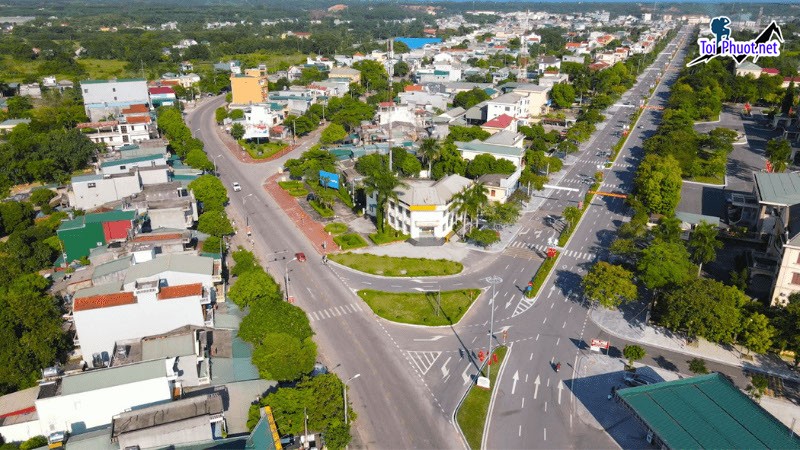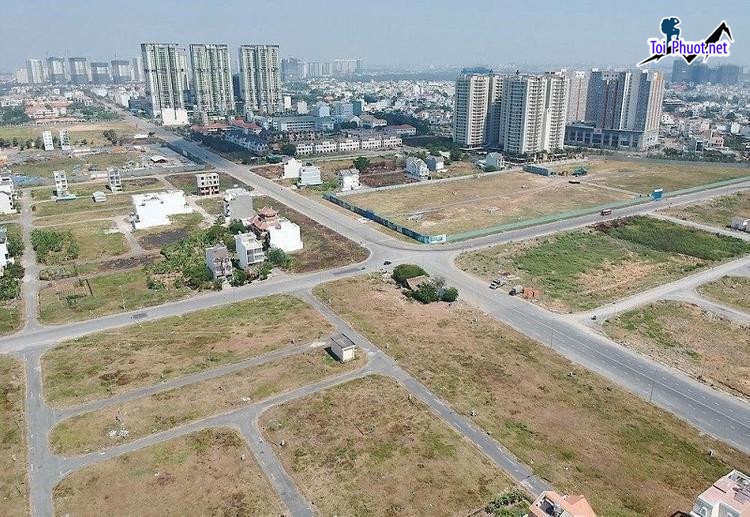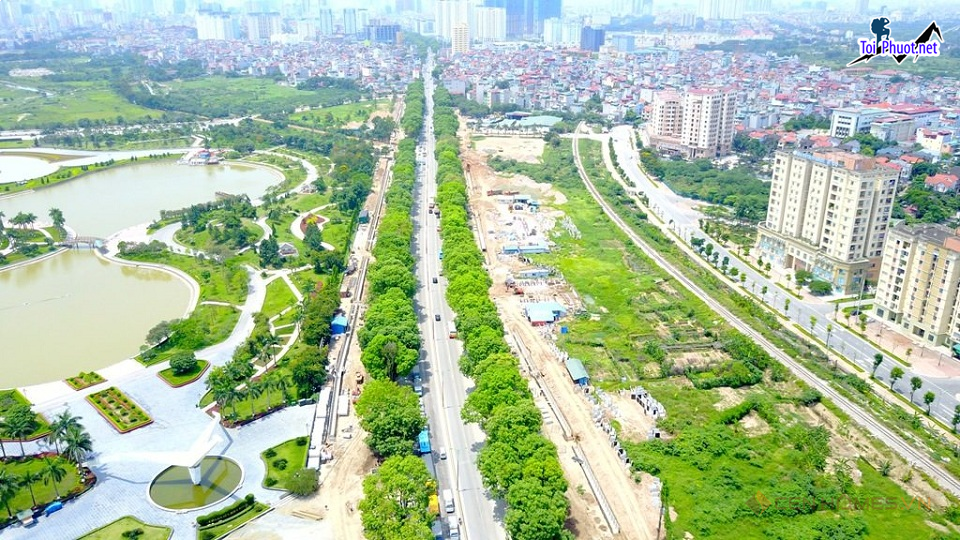
What is planned land? Should you buy planned land in the US? In reality, there are quite a few cases where people buy land or houses but after some time, the property is suddenly reclaimed due to zoning plans. So, what is zoned land? How can one check if a piece of land is under zoning? And can zoned land be transferred?
Zoned land refers to areas included in the land use planning of a locality, categorized by specific usage purposes and divided into different phases over a set period.
Each locality has land use plans based on available land and actual land use conditions. These plans may change over time to align with the locality’s development policies. Common land zoning plans include residential area planning, road infrastructure planning, green space zoning, road boundary zoning, urban planning, and more.
The purpose of land zoning is to set policy direction and ensure effective land use. It serves as the legal basis for the State to allocate land, issue land use right certificates, approve changes in land use purpose, and compensate residents when land is reclaimed due to zoning plans.
What is planned land? Should you buy planned land in the US?
To determine if a plot of land falls under zoning, buyers can check zoning information in the notes section on the land use right certificate (the pink or red book). It will clearly state which zoning category the land belongs to, helping buyers assess whether the plot suits their needs before making a transaction.
Buyers can also inquire about zoning at the local Land Registration Office (under the District Department of Natural Resources and Environment). For more certainty, buyers can request a Zoning Confirmation Certificate for the plot they plan to purchase, though this process usually takes 10–15 days.
Additionally, buyers can ask real estate companies or local service providers to check zoning status. These professionals are knowledgeable about zoning issues and can provide information more quickly and conveniently.
Land under zoning restrictions has some limitations but does not restrict the right to transfer ownership of houses or land, whether or not there is an annual land use plan from the district level. Therefore, owners of land within zoning areas can still transfer ownership. However:
If the transfer occurs before any official notification or decision to reclaim the land, the land user will be granted a land use right certificate.
If the transfer happens after a notification or land reclamation decision, the land user will not be granted a land use right certificate.
Moreover, the land in question must meet the conditions specified in Clause 1, Article 188 of the 2013 Land Law as follows:
Possession of a land use right certificate, except cases regulated in Clause 3, Article 186 and inheritance cases as per Clause 1, Article 168 of the Land Law;
The land is free from disputes;
The land use rights are not under enforcement to satisfy legal judgments;
The land use term is still valid.
What is planned land? Should you buy planned land in the US?
If the land qualifies for transfer, the procedure is the same as a regular land use rights transfer, as follows:
Both parties visit a notary office to draft and notarize the land use rights transfer contract.
Declare financial obligations at the Land Registration Office.
Submit documents for name transfer registration.
Pay all required fees and receive the updated land use right certificate.
Cases where zoned land can still be granted a land use right certificate:
If the land use plan has been announced but the district-level annual land use plan has not yet been issued, the land user may continue using the land and exercise rights such as issuance of a land use right certificate, conversion, transfer, lease, sublease, inheritance, gifting, or contribution of land use rights.
If the district-level annual land use plan is in place, land users in the zoning area must convert land use purpose and hand over land according to the plan. They may still exercise their rights but are prohibited from building new houses or structures, or planting perennial crops. Any repairs or renovations must be approved by competent state agencies as per the law.

According to Article 19 of Decree No. 43/2014/ND-CP dated May 15, 2014, detailing the implementation of certain provisions of the Land Law:
Organizations or residential communities assigned land for management by the State under conditions specified in Article 8 of the Land Law.
Individuals managing or using agricultural land from communal land funds of communes, wards, or townships.
Persons leasing or subleasing land from land users, except in cases leasing from investors developing infrastructure in industrial zones, industrial clusters, export processing zones, high-tech zones, or economic zones.
Individuals contracted to use land in state farms, forestry farms, agricultural or forestry enterprises, protective forest management boards, or special-use forest management boards.
Land users who do not meet conditions for issuance of land use right certificates or ownership certificates for houses and attached assets.
Land users who meet the conditions but have received a notification or decision to reclaim land from competent state authorities.
Organizations or commune-level People's Committees assigned land by the State without land use fees for public works such as roads, water supply, fuel or gas pipelines; power transmission or communication lines; outdoor recreational areas; cemeteries not intended for commercial purposes.
Nguồn tin: nhadat.cafeland. vn
Những tin mới hơn
Những tin cũ hơn
 Cho Thuê Lều Du Lịch Giá Rẻ Ở Tại Phú Yên
Cho Thuê Lều Du Lịch Giá Rẻ Ở Tại Phú Yên
![[Flycam] Núi Đá Bia, điểm du lịch sinh thái ở Phú Yên](/assets/news/2016_10/nui-da-bia-diem-du-lich-sinh-thai-o-phu-yen13.jpg) [Flycam] Núi Đá Bia, điểm du lịch sinh thái ở Phú Yên
[Flycam] Núi Đá Bia, điểm du lịch sinh thái ở Phú Yên
 Ngẩn Ngơ Vẻ Đẹp Tinh Khôi Của Hot Girl Tú Linh Khi Diện Áo Cưới
Ngẩn Ngơ Vẻ Đẹp Tinh Khôi Của Hot Girl Tú Linh Khi Diện Áo Cưới
 Cho thuê loa kẹo kéo vali du lịch giá rẻ tại Tuy Hòa - Phú Yên
Cho thuê loa kẹo kéo vali du lịch giá rẻ tại Tuy Hòa - Phú Yên
 Spa ở tại Tuy Hòa Phú Yên bạn nên chọn để làm đẹp và chăm sóc da
Spa ở tại Tuy Hòa Phú Yên bạn nên chọn để làm đẹp và chăm sóc da
 Địa Điểm Chụp Ảnh Cưới Đẹp Ở Phú Yên
Địa Điểm Chụp Ảnh Cưới Đẹp Ở Phú Yên
 Thuê Xe Máy Tuy Hòa - Thuê Xe Máy Phú Yên Giá Rẻ
Thuê Xe Máy Tuy Hòa - Thuê Xe Máy Phú Yên Giá Rẻ
 Cây hoa đào, mai, liễu đèn led, thanh lý giá rẻ toàn quốc
Cây hoa đào, mai, liễu đèn led, thanh lý giá rẻ toàn quốc
 Suối nước khoáng Phú Sen, điểm du lịch nghĩ dưỡng ở Phú Yên
Suối nước khoáng Phú Sen, điểm du lịch nghĩ dưỡng ở Phú Yên
 Áo cưới Phú Yên Sang Trọng Quyến Rũ
Áo cưới Phú Yên Sang Trọng Quyến Rũ
 5 quán Nem Nướng Nha Trang Nhà Bè ăn là ghiền Sài Gòn Hồ Chí Minh
5 quán Nem Nướng Nha Trang Nhà Bè ăn là ghiền Sài Gòn Hồ Chí Minh
 5 quán Nem Nướng Nha Trang Cần Giờ ăn là ghiền Sài Gòn Hồ Chí Minh
5 quán Nem Nướng Nha Trang Cần Giờ ăn là ghiền Sài Gòn Hồ Chí Minh
 5 quán Nem Nướng Nha Trang Củ Chi ăn là ghiền Sài Gòn Hồ Chí Minh
5 quán Nem Nướng Nha Trang Củ Chi ăn là ghiền Sài Gòn Hồ Chí Minh
 5 quán Nem Nướng Nha Trang Hóc Môn ăn là ghiền Sài Gòn Hồ Chí Minh
5 quán Nem Nướng Nha Trang Hóc Môn ăn là ghiền Sài Gòn Hồ Chí Minh
 5 quán Nem Nướng Nha Trang Bình Chánh ăn là ghiền Sài Gòn Hồ Chí Minh
5 quán Nem Nướng Nha Trang Bình Chánh ăn là ghiền Sài Gòn Hồ Chí Minh